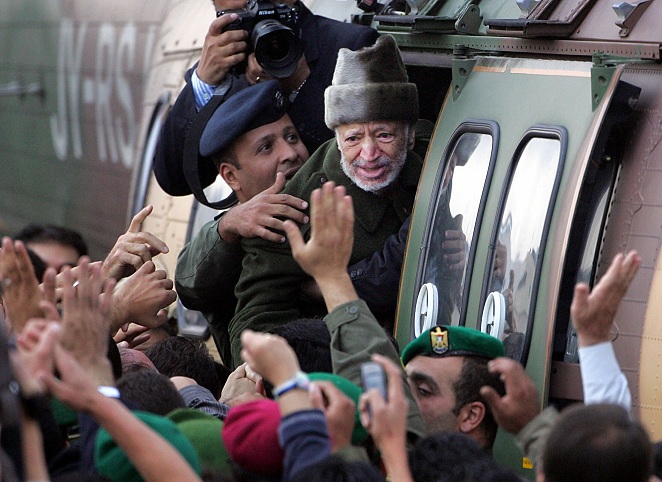The three Al Jazeera journalists, Mohamed Fahmy, Baher Mohamed and Peter Greste, received Saturday three year prison sentences in the case also known as the ‘Marriott Cell’. The new sentences passed on the journalists had been reduced from the original 7 and 10 year terms given in their first trial.
“The verdict cannot be appealed anymore, it’s final,” said Fatma Serag, of the Association of Freedom of Thought and Expression (AFTE). According to her, Fahmy is now eligible for deportation under a law that allows foreign convicts to return to their countries.
Greste, an Australian citizen, was deported last February – things have, however, been harder for Fahmy, who holds dual Egyptian-Canadian citizenship. Fahmy was allegedly told to renounce his Egyptian citizenship and be treated as a “foreign defendant” in the case.
Although the Ministry of Interior published a copy of the document Fahmy signed in December 2014, he remained in prison, was left without his passport and remained under travel restrictions during his release on a bail of EGP 250,000.
As for Mohamed, Serag said: “We’d better hope for a presidential pardon.”
Nonetheless, she criticised the judge for outlining that one of the reasons behind the ruling was that the defendants are not registered journalists at the Press Syndicate or the System Information Service as foreign reporters.
“We have many unregistered [journalists], and those are the ones who face the most violations,” she said. “Besides, the defendants and their lawyers presented all evidence of their work as journalists.”
The Dutch Minister of Foreign Affairs, Bert Koenders, expressed his concern over the verdict on Saturday. In his statement, he called on the Egyptian authorities to release the journalists, “unless there are legitimate charges”.
“Democracy can only function when [those in] power are being checked. Journalists play an important role in that, also in Egypt,” Koenders said.
In a reference to Dutch journalist Rena Netjes who was sentenced to 10 years in absentia in the same case against the Al Jazeera journalists, Koenders emphasised there should be a solution for those convicted in absentia.
“Journalism ought to be the pillar of a civilised society,” he concluded.
Despite widespread criticism of Egypt due to the case, the three journalists have not been spared punishment, in what Fahmy previously referred to as “a political conflict between the Egyptian state and the Qatari network”. Mohamed, Fahmy and Greste had submitted proof they worked for the network’s English-language channel rather than the Arabic channel, which has been biased towards the Muslim Brotherhood, much to Egypt’s discontent.
The three journalists were arrested on 28 December 2013, and spent over 400 days in prison before a verdict was finally handed out in June 2014. The first prison sentence sparked worldwide outrage, as the international community repeatedly called on the Egyptian authorities to release the journalists.
“They’ve been convicted without a shred of evidence,” said Giles Trendle, Acting Managing Director of Al Jazeera English.
During the detention, the Press Syndicate pushed for the three journalists’ release, despite their not registered. According to Khaled El-Balshy, Head of the Press Syndicate’s Freedoms and Rights Committee, the prosecution of journalists for doing their job must end.
In comments to Daily News Egypt after the verdict, El-Balshy said that the Al Jazeera journalists should not have been held accountable for unlicenced equipment, as it falls out of their tasks and responsibility. “The syndicate’s stance has been clear in this case, which was to stand in solidarity with the journalists, regardless of whether they are members of the syndicate,” he said.
However, El-Balshy said there are charges in the case related to broadcasting and the press, adding that there is nothing the syndicate could currently do, except provide legal assistance. He added: “But the syndicate’s efforts to improve the status of journalists are aimed at avoiding such cases and not having our colleagues behind bars.”
According to Serag, the Al Jazeera trial verdict is a “dangerous indication” of the future of press freedom in Egypt. Amal Clooney, who attended the court hearing as part of Fahmy’s defence, also described the verdict as a “dangerous message” in press statements.
Other angry reactions included tweets published by Gamal Eid, of the Arabic Network for Human Rights Information (ANHRI), in which he slammed accusations that Al Jazeera’s journalists spread false news, in comparison to the local media coverage of the army-promoted fake HIV cure.
“The political crises with Qatar, in addition to an unconstitutional law issued by President Abdel Fattah Al-Sisi allowing the deportation of foreign convicts, have made this case lose its credibility since the first day,” Eid wrote.
In a press statement, the Committee to Protect Journalists (CPJ) pointed out the lack of evidence to support charges against defendants. “We call on Egyptian authorities to put an end to the abuse of the law which has made Egypt one of the riskiest countries in the world to be a journalist,” said Sherif Mansour, the CPJ’s Middle East and North Africa Program Coordinator.



